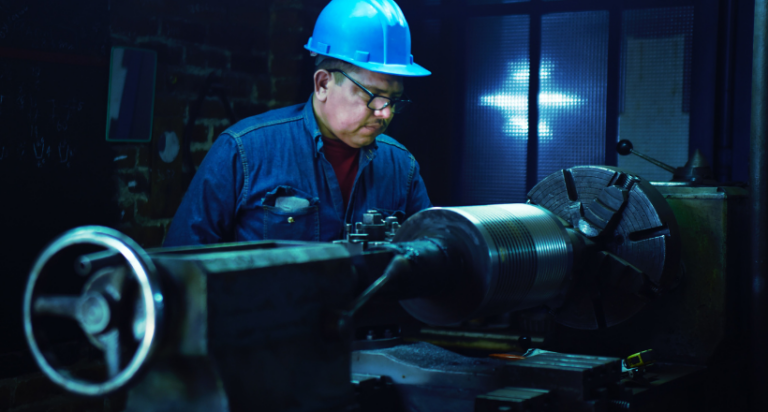Quand la délocalisation nous pousse à se partager les profils ingénieurs
La grande délocalisation est en cours. Les emplois manufacturiers reviennent en masse des coins les plus reculés du monde où ils avaient migré il y a plusieurs décennies. Les pays occidentaux sont déterminés à fabriquer des composants essentiels en mode local. Pensez aux éoliennes et aux panneaux solaires. Mais ne rêvons-nous pas ? L’avis de Tamara Moonen, Head of SThree Antwerp (article en anglais).
Onshoring is being driven by tensions with China and the war in Ukraine, which have made supply lines seem more fragile than ever. But while nations want to make the products that are most essential to their net zero ambitions, after years of manufacturing overseas, expertise is in very short supply.
We’re already seeing some companies sharing talented people and I expect to see much more of this. My city of Antwerp, which is home to the second largest petrochemical cluster in the world, is showing the way. A consortium has been created which allows the members to share their engineers in a joint project to tackle CO2 emissions.
I think it’s inevitable, too, that far more engineers will turn to contracting because growing demand will offer them job security, flexibility and rewarding projects. The opportunities will be enormous, but success is not guaranteed. They’ll need to complement their technical expertise with soft skills like communication in a tight-knit community where reputation can make or break careers.
Older industries must become efficient fast
In the end, however, we’ll simply need more engineers. There are solutions but none of them are easy. In the US, for example, the Reshoring Initiative predicts that 400,000 jobs will be created by reshoring and foreign direct investment this year. It says that five million US manufacturing jobs remain overseas – for now – and a “massive skilled workforce investment” is needed.
Training existing engineers to work on projects like the manufacture of wind turbines, solar panels, or battery storage systems could provide some of the skilled workers needed. That sounds simple but there just aren’t enough to go around. If we train engineers on these new technologies, older and less glamorous industries will be stripped of talent.
We’re already seeing this in Antwerp. Project One is a €3bn investment in a new facility to produce ethylene, an essential ingredient in everything from wind turbine lubricants and blades to solar panels. It’s an important development for Europe but is sucking in engineering talent from across the economy.
This will become a familiar scenario in the coming months and years. Older industries will either have to become very efficient, very fast, or, ironically, move manufacturing offshore to regions where engineers are more plentiful.
Europe’s skills dilemma
In Europe, the Green Deal Industrial Plan was launched this year to enhance the competitiveness of the EU’s net zero industry and support the transition to climate neutrality. Between 35% and 40% of all jobs are expected to be affected by the green transition and one of the plan’s four pillars focuses on developing the skills needed for well-paid jobs.
The European Commission plans to establish Net-Zero Academies to roll out upskilling and reskilling programmes in strategic industries. The embattled European battery industry, for example, which has already received nearly €8bn of public support, identifies strengthening the EU’s workforce and skills as one of its six objectives.
Skilled workers will also be needed for plans set out in the European Critical Raw Materials Act, which aims to bring the EU closer to its climate ambitions by improving the refining, processing, and recycling of critical raw materials in Europe. They are needed for manufacturing key technologies for wind power generation, hydrogen storage and batteries.
Send engineers into schools
Amid this burgeoning demand for talent, we face an added dilemma. The engineering workforce is ageing and large numbers are set to retire, with far too few young entrants to the profession. Efforts are being made in every country to encourage young people into STEM professions. In Antwerp, (petro) chemical engineers regularly visit schools to inspire the next generation and we need to see more of this.
Migration could also be part of the solution, but some regions find it easier than others to attract professionals. The US, Canada and Australia, for example, find it easier because of lifestyles and because they have the space to build cutting-edge manufacturing facilities from scratch. Europe, on the other hand, is finding it increasingly difficult to attract expertise.
The rise of artificial intelligence has come at the right moment to play a part in solving the onshoring conundrum. It may help to mitigate the impact by freeing qualified engineers to focus on more complex and strategic tasks. If you asked ChatGPT to create an electrical scheme, for example, it could probably do it much faster than an electrical engineer. So greater integration of AI platforms and tools will help.
Increasing diversity and encouraging more women and those from ethnic groups could also help to increase the inflow of talent into engineering. But it won’t make a significant difference on its own. Still today, many women don’t choose engineering as a career and those that do often make lifestyle decisions which mean they end their career early or work part time.
There is no easy answer to the engineering skills gap, and the onshoring of critical manufacturing will only make the challenge more difficult and more urgent. It will take a combination of approaches to begin to tackle it, from sharing talent and upskilling to using AI, attracting professionals from overseas, improving diversity and encouraging more people into STEM. Governments need to step up and meet the challenge head on.
Learn more about SThree’s global brands recruiting right now for engineering expertise.
Continuez sur votre lancée :

















